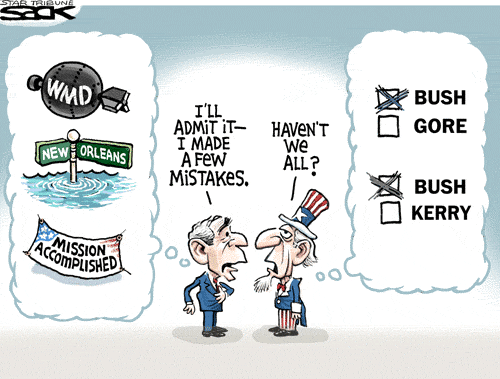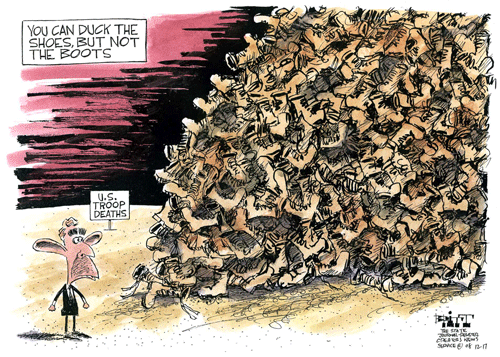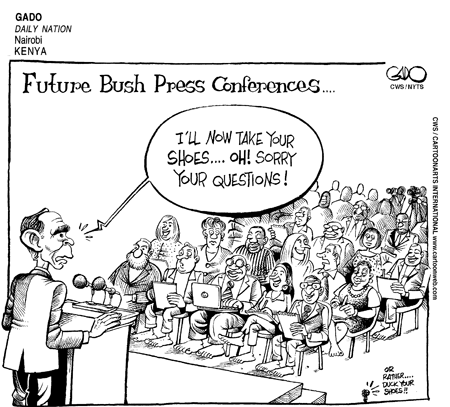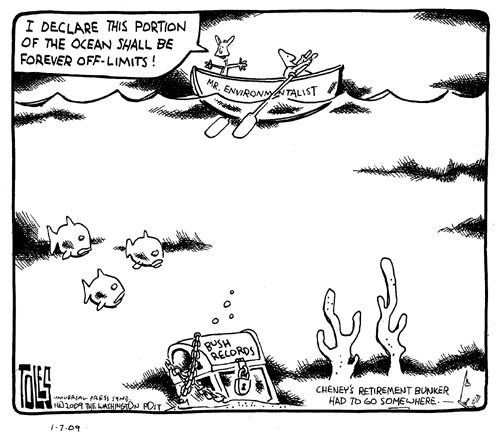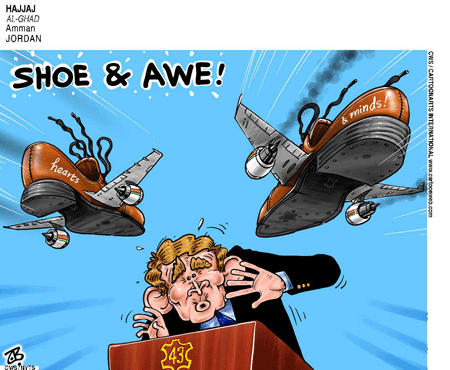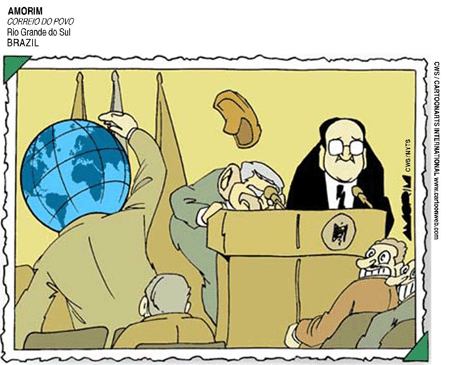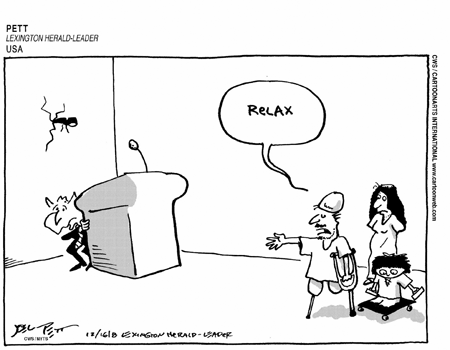We are less than two weeks away from the end of the Bush era, but it is not too early to assess how this important presidency went so disastrously wrong. There are already shelves full of books criticizing Bush and his administration, and there will undoubtedly be more as records become available to reveal what will almost certainly be a generation's worth of damage that we have not yet even recognized. But the whole of Bush's failure is not simply the sum of his administration's parts. The key to his behavior is less ideology than a critical aspect of his character.
Most Americans, I suspect, if asked whether they would prefer a president with strong principles or one who prefers pragmatic politics, would choose an idealist over a realist in a flash. But almost all successful politicians combine principle with pragmatism constantly. They speak of great goals and deep convictions, but they govern in a world that almost always requires compromises, half-measures, and concessions. Abraham Lincoln, our greatest president, is remembered best for his lofty rhetoric, his great public convictions, and his aura of humanity. But Lincoln was also one of the craftiest and most skillful politicians ever to inhabit the White House, a leader who changed course constantly on almost everything except his commitment to the Union and who repeatedly outfoxed even the most powerful and experienced political figures with whom he worked. Franklin Roosevelt was revered by his admirers in the 1930s as a great father figure, committed to reforming American life and embracing the needs of the neediest Americans. But those who worked with him were constantly struck by his political nature, which often led to compromise, inconsistency, and dramatic changes of course. Roosevelt himself, in frank moments, admitted that the only things that interested him were things that worked.
On the other hand, Herbert Hoover, Roosevelt's immediate predecessor, exemplifies the dangers of sticking to one's principles. One of the ablest and most widely admired men in America when he was elected president in 1928, Hoover left office four years later discredited and reviled--a victim of a Depression that he had not created, to be sure, but also a victim of his choice of conviction over pragmatism. Unwilling to challenge the pillars of free-market capitalism, strongly committed to balanced budgets and fiscal prudence, convinced that the natural laws of economics would bring the Depression to a close, he responded to the Depression with such restraint and timidity that had his administration not ended when it did, the entire financial system of the United States might have collapsed.
Bush, like Hoover, has blanketed himself with principles and commitments. But, unlike Hoover, he has built an administration that seems almost purposely designed to ward off any challenges to the President's goals and to protect him from the need to compromise with other areas of government. To a remarkable degree, the Bush White House has created defenses from other areas of government--Congress, the states, leaders of other nations, even other parts of his own administration--in a way that seem designed to create something like an autocracy. This was not because power itself has been Bush's principal goal. He was, apparently, a happy man serving in one of the weakest governorships in the country. But the accumulation of power in the White House has protected him from the need to negotiate and make compromises with others.
For whatever reasons--his difficult family history, his problems with addiction, his failed careers before entering politics, his strong religious convictions--Bush has seemed to be comfortable only when he could make quick and firm decisions, however complicated the issue, and then move on. Admitting mistakes or changing course seems almost contrary to his nature. The "unitary executive," which Dick Cheney has so energetically implemented and defended, was the perfect vehicle for Bush's tendency to prefer conviction over practicality. When Congress passed laws that challenged his convictions, the White House changed them through signing statements. When the Supreme Court struck down policies Bush believed in, the White House largely ignored the decisions. When military leaders pointed out the futility of wartime strategies, Bush ignored the generals and waited for Rumsfeld to replace them. When Hurricane Katrina devastated New Orleans, Bush was not only slow to act, but also never took any significant steps to repair the damage that his administration had done to the agency that was supposed to have helped rebuild the city. FEMA today is little better prepared for another Katrina than it was in 2005.
On the surface at least, Bush--and much of his coterie--are leaving the White House serene and unruffled by their extraordinary unpopularity. That may be a good thing for them as they relinquish their power and look back on their dismal legacy. But the American people would do well, in the aftermath of this disastrous presidency, to consider the value of what may be an uninspiring, but certainly essential, quality of leadership: the ability to experiment, to make changes, to reconsider ideas and principles that fail to work, and to embrace, at least in part, the philosophy of pragmatism that is, not surprisingly, one of the few truly American contributions to the history of ideas.
Alan Brinkley is provost and Allan Nevins Professor of History at Columbia.
